L-Arginine Benefits: 15 Key Health Advantages
While it is a vital amino acid with many benefits, never take it in excess.

Image: shutterstock
The benefits of L-arginine may persuade you to include it in your diet. Arginine is the building block for synthesizing protein in the body. However, the body does not produce enough arginine to meet metabolic requirements in certain health conditions. Therefore, these patients may benefit from supplemental arginine.

There are many health benefits associated with this vital amino acid. Aside from lowering high blood pressure, healing wounds, boosting the immune system, and treating heart disease, it may also reduce inflammation in the digestive system. This article discusses the benefits of L-arginine, its recommended dosage, and any potential side effects. Keep reading.
In This Article
What Is L-arginine?
L-Arginine (2-amino-5-guanidino-pentanoic acid) is a conditionally essential and proteinogenic amino acid. It has been studied extensively as a precursori A substance or cellular component that precedes another of its own kind or from which another is formed. of nitric oxide production of the body (a compound that relaxes blood vessels in humans). An individual’s body naturally produces l-arginine, though there are cases where it is supplemented to fetch maximum arginine benefits. People who are under certain medications are prescribed this amino acid in the form of oral medication.
 Trivia
TriviaIn the following section, we will explore l-arginine benefits and uses.
Key Takeaways
- L-Arginine is an essential amino acid naturally produced in the body.
- It may help treat erectile dysfunction and increase sperm virility.
- L-arginine improves collagen production, heals wounds, and boosts blood circulation.
- Excess consumption of l-arginine can lead to heart attacks and serious illnesses among infants and children.
What Are The Benefits Of L Arginine?
1. May Help Treat Heart Disease
In a study, long-term oral administration of l-arginine for 6 months improved the symptoms of non-obstructive coronary artery disease (1). L-arginine helps in the treatment of coronary abnormalities caused by high blood cholesterol levels (2). L-arginine enhances blood flow in coronary arteries. This may help in treating various cardiovascular conditions.
L-arginine is the precursor of nitric oxide. Nitric oxide plays a role in various physiological effects in the cardiovascular system. The oral administration of l-arginine could improve symptoms of cardiovascular disease (3). Dietary supplementation of l-arginine, along with regular physical exercise, was also found to benefit patients with chronic heart failure (4). L-arginine has anti-inflammatory and metabolic properties that help treat non-diabetic patients with cardiovascular disease (5).
2. May Reduce High Blood Pressure
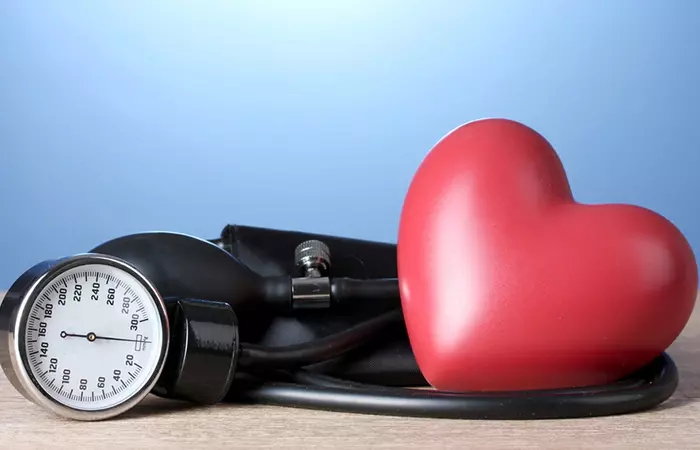
Oral administration of l-arginine could significantly lower both systolic and diastolic blood pressure levels (6). External l-arginine had also rapidly reduced systolic and diastolic blood pressure levels in both healthy humans and patients with hypertension (7). In one study, l-arginine supplemented at 4 grams per day could significantly lower blood pressure in women with gestational hypertension. The supplement also reduced the need for an antihypertensive therapy (8), (9). L-arginine supplementation in pregnant women with chronic hypertension could reduce their blood pressure levels. The supplement could also offer protection in high-risk pregnancy (10).
3. May Ease Inflammation Of The Digestive Tract In Premature Infants
L-arginine may ease the inflammation of the digestive tract in premature infants. In a study, dietary supplementation of l-arginine enhanced the intestinal growth and eased inflammation in weanling piglets (11). Similar outcomes could be expected in human babies too, though more research is warranted.
In another study, plasma l-arginine concentrations were lower in premature infants diagnosed with necrotizing enterocolitis (NEC). NEC is a disease that destroys intestinal walls in premature infants (12). L-arginine supplementation was found to reduce the incidence of all stages of NEC (13), (14).
4. May Treat Gastrointestinal Tract Problems
Mice studies reveal that l-arginine can improve colonic motility. It also has the potential to alleviate GI discomfort (15). However, more long-term research is needed to understand this effect of l-arginine in humans.
5. May Help Prevent Diabetes And Related Complications
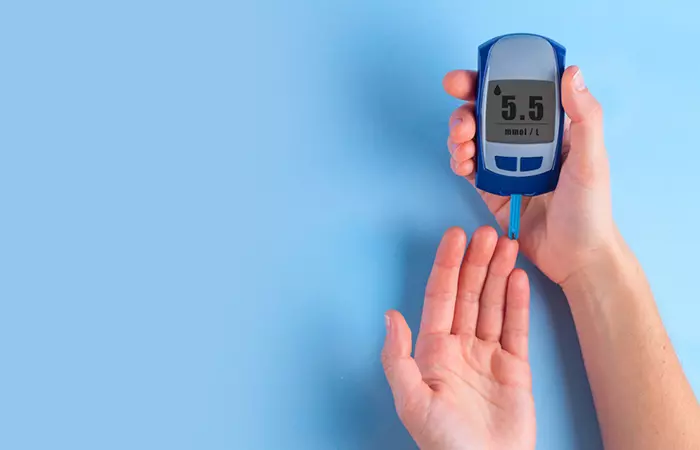
L-arginine may help prevent diabetes and related complications. Diabetes is associated with reduced plasma levels of arginine. Evidence suggests that l-arginine supplementation may be an effective way to improve endothelial function in individuals with diabetes mellitus. L-arginine may also counteract cell damage and reduce the long-term complications of type 2 diabetes. It also improves insulin sensitivity (16).
L-arginine supplementation was also found to reduce the risk of diabetes mellitus (17).
L-arginine-enriched biscuits with low sugar and protein content were found to enhance endothelial function and improve glucose metabolism, insulin sensitivity, and insulin secretion (18).
6. May Boost Immune Health
L-arginine may boost immune health by stimulating lymphocytes (white blood cells) (19). Intracellular l-arginine levels directly impact the metabolic fitness and survival capacity of T cells (a type of white blood cell) that are crucial for anti-tumor responses (20).
L-arginine is an essential amino acid that is fundamental for the function of T lymphocytes (T-cells). Patients with cancer usually have an impaired T‐cell response that can decrease the potential therapeutic benefit of cancer vaccines and other forms of immunotherapy. L-arginine may regulate T-cell function in the case of chronic inflammatory diseases and cancer (21).
L-arginine metabolism plays a major role in autoimmune and neoplastic (tumor-related) diseases (22).
L-arginine supplementation aids in breast cancer prevention by enhancing innate and adaptive immune responses (23).
In one randomized clinical trial involving 63 participants with pulmonary tuberculosis, L-arginine supplementation showed reduced symptoms (24).
7. May Help Treat Erectile Dysfunction
L-arginine may help treat sexual dysfunction. Arginine is required for normal spermatogenesisi The process by which sperm cells are formed from existing germ cells within male reproductive organs. . Oral administration of 500 mg of arginine–HCl per day to infertile men for 6–8 weeks markedly increased their sperm count and fertility (16).
Oral administration of l-arginine in high doses lead to significant improvement in sexual function (25).
Long-term oral administration of pharmacological doses of l-arginine was found to improve erectile responses in an aging rat (26).
8. May Improve Blood Flow
L-arginine infusion was found to promote regional cerebral blood flow in hypertensive rats (27). It also could improve vasodilation (dilation of blood vessels that reduces blood pressure) in hypercholesterolemic (high levels of cholesterol in blood) humans (28).
L-arginine infusion in healthy subjects could inhibit platelet aggregation and blood viscosityi A measure of a liquid’s resistance to deformity; informally, the thickness of a liquid substance. and also promoted leg blood flow (29). L-arginine administration in rats could also improve post-traumatic cerebral blood flow (30).
William, a content creator, shared his experience of using L-arginine supplements to control his body temperature and heart rate. After using it for 2 months, he saw dramatic changes in his heart rate and body temperature. In one of his vlogs, he says, “It caused my heart rate to go down substantially, and I’ve just been this happy-go-lucky person for the past two months, knowing my body isn’t cold. My heart rate is down about 15 to 20 beats per minute, and it’s just been fantastic (i).”
9. May Aid Weight Loss
L-arginine has been proven to stimulate fat metabolism. This may help in weight loss. The amino acid alters the balance of energy intake and expenditure in favor of fat loss (31). It also regulates brown adipose tissue and reduces the accumulation of white fat in the body (32).
However, more long-term research is needed to understand this benefit of l-arginine in humans.
10. May Heal Wounds
Dietary l-arginine has been shown to improve collagen deposition and wound healing in both humans and animals. L-arginine may improve wound immune cell function by decreasing the inflammatory response at the wound site (16).
11. May Treat Anxiety

L-arginine is said to possess anti-stress and adaptogenici A term used to describe natural substances that have a calming effect on animal and human physiology. properties that help treat anxiety and improve cognitive function (33)(N).
Dietary supplementation of a combination of l-lysine and l-arginine (two essential amino acids) may reduce the hormonal stress responses in humans with anxiety. However, concrete research is lacking in this area.
12. May Treat Burns
L-arginine administration during burn injuries was found to boost cardiac performance. It also could prevent bacterial translocation (34).
L-arginine supplementation during the early stage of burns was found to help with the resuscitation of the burn shock (35). Collagen is vital for hair growth. The study shows that L arginine boosts collagen production, which helps with skin regeneration and maintaining skin health.
Oral dietary l-arginine supplementation of 100–400 mg/kg/day could accelerate the synthesis of reparative collagen in burned rats (16).
13. May Improve Kidney Function In People With Congestive Heart Failure
Nitric oxide deficiency contributes to cardiovascular events and the progression of kidney damage. Low plasma levels of l-arginine is one of the major causes of nitric oxide deficiency and impairs the ammonia removal system. Supplementation of l-arginine was found to improve kidney function (36).
Oral administration of l-arginine also had beneficial effects in renal function in patients with congestive heart failure (37).
In another study, a moderate increase in l-arginine supplementation significantly lowered blood pressure. It also had improved renal function in healthy individuals (38).
Further studies are warranted to understand this benefit.
 Quick Tip
Quick Tip14. May Enhance Exercise Performance

In a study, eight weeks of oral l-arginine administration (3 g) to 20 male subjects on an exercise program caused a significant increase in muscle strength and muscle mass (16). L-Arginine is required for creatinine production in the body, which in turn helps in muscle growth.
In rat studies, treadmill exercise, along with l-arginine supplementation, was found to delay aging by suppressing oxidative stress and inflammation (39).
15. May Improve Hair Growth
Anecdotal evidence suggests that l-arginine may help improve hair growth.
This amino acid may relax blood vessels and improve blood flow to the scalp and the base of hair follicles. However, research is limited in this regard.
These are the l-arginine benefits for males and females. In the following section, we will look at its ideal dosage.
Recommended Dosage Of L-Arginine
Just like several other supplements and nutrients, the dose of l-arginine is highly dependent on the age, gender, and the condition of the user. Doses of 3–8 g/day appear to be safe in humans (40). Here are the recommended doses for a few cases:
Cardiovascular disease – 3 to 6 grams, divided into two parts (mornings and evenings) (41)
Erectile dysfunction – 3 to 6 grams, divided into two parts (mornings and evenings) (42)
Exercise performance – 5 to 9 grams, once a day (43)
L-arginine may also cause side effects in some cases. We will explore more in the following section.
What Are The Side Effects Of L-Arginine?
Excess intake of l-arginine may lead to side effects ( these are rare and mostly dose-dependent). These include unstable blood pressure, aggravated diabetes symptoms, allergies, abdominal pain and bloating, chemical imbalances in the blood, or an increased risk of bleeding in pregnant women.
Nausea and diarrhea have been reported infrequently at higher doses ranging from 15 to 30 g per day (16). Intake of l-arginine in normal food amounts seems to be safe, and no side effects have been reported in this regard. However, lactating and pregnant women should avoid the use of l-arginine.
Risks
For a certain group of individuals, l-arginine may pose a serious risk. L-arginine may lead to an increased risk of death after a heart attack. It also may make blood pressure control during surgeries more difficult. The amino acid may cause serious illness to infants and children and may also show negative interactions with certain medications meant for blood pressure control. However, the intake of L-arginine in limited doses appears to be safe. Concrete research is limited in this area. Consult your doctor.
Foods High In L-Arginine

This amino acid can easily be found in a number of food sources like nuts and fish. The rich food sources of l-arginine include:
- Eggs
- Dairy products like yogurt, kefir, and cheese
- Beef
- Turkey
- Chicken
- Beef and chicken liver
- Wild-caught fish (they also provide you with essential omega-3 fatty acids that are great for heart health)
- Coconut
- Pumpkin seeds
- Sesame seeds
- Sunflower seeds
- Seaweed
- Sea vegetables
- Walnuts
- Almonds
While understanding food sources of L-arginine is essential, it is also helpful to clear up common misconceptions about this amino acid to ensure accurate knowledge about its effects and uses. Scroll down to know more.
L-Arginine Myths And Facts
As L-arginine supplements have become more popular, many misconceptions regarding their effects and nutritional significance have surfaced. Let us address a few of the most common misconceptions:
Myth: Higher L-arginine always means better outcomes.
Fact: Excessive L-arginine dosages may lead to gastrointestinal distress and may not always provide additional benefits (44). It is important to follow prescribed dosages or speak with a healthcare professional before using it.
Myth: Everyone requires L-arginine.
Fact: L-arginine is a “conditionally essential” amino acid, which means that most humans can make enough of it on their own (45). In general, supplements are only required for certain medical conditions or physical performance objectives.
L-arginine is an essential amino acid that may improve your health in various ways. But how is it different from another amino acid, ornithine? Check out the next section.
L-Arginine Vs. Ornithine
- L-arginine is an essential amino acid produced by your body but required from food sources during extreme stress or illness. Ornithine is a non-essential amino acid made from other amino acids.
- L-arginine helps in wound healing, reduces inflammation, and may treat gastrointestinal issues (16). Anecdotal evidence suggests that ornithine helps remove excess nitrogen from the body.
- L-arginine is found in dairy products, meat, poultry, and nuts, while ornithine is found in legumes, nuts, seeds, and meat.
- L-arginine supplements are used by several bodybuilders to enhance muscle growth. Ornithine supplements help reduce fatigue and improve recovery.
Infographic: Tips To Keep In Mind While Using L-Arginine
L-arginine is an essential amino acid that helps in managing diabetes, boosting your immune system, and improving hair growth. L-arginine can be taken via food sources or supplements prescribed by your doctor. We have compiled a list of tips to keep in mind while using L-arginine. Check out the infographic below to know more.
Some thing wrong with infographic shortcode. please verify shortcode syntax
L-Arginine benefits go beyond its vital functioning as a synthesizing protein. It not only helps form the building blocks of our body but is also key to maintaining your vitals. It helps improve cardiac and digestive conditions while boosting your overall immunity and aiding in weight loss as well. Eggs, nuts, seeds, and grains are a few of the arginine-rich food options that can help you get better health and immunity. While it is a vital protein, it is also important not to overdo it to avoid any potential side effects from l-arginine uses.
Frequently Asked Questions
Can L-arginine improve athletic performance?
L-arginine may enhance athletic performance by improving blood flow and increasing nitric oxide production, which helps deliver more oxygen and nutrients to the muscles during exercise (46). Individual reactions can differ, so it is important to speak with a healthcare professional before beginning supplementation, even though some research suggests benefits for endurance and recovery.
Does l-arginine burn belly fat?
L-arginine may be effective in reducing central adiposityi The condition of having morbidly excessive body fat with increased risk of heart diseases. It is more commonly known as obesity. in obese patients (47). Previous studies showed that dietary l-arginine supplementation decreased white fat mass in genetically obese rats. Thus, dietary arginine supplementation may promote muscle over fat gain. It may be useful for improving metabolic profile and reducing body white fat (48).
Can you take l-arginine every day?
There is no recommended daily amount established for l-arginine because the human body normally makes enough of it. If taken as a supplement, higher doses of arginine are often needed. Doses of 1200 mg (per day) in the supplement form could be helpful.
How long does arginine take to work?
The single dose of 5-6 grams of l-arginine can be administered 2-3 times a day. It may take 2 to 3 months to work and should be taken continuously or as directed by the health care expert.
Should l-arginine supplement be taken on an empty stomach?
L-arginine is usually recommended to be taken on an empty stomach. Take the supplement with lots of water to avoid nausea.
Can you take l-citrulline and l-arginine supplements together?
Amino acids are necessary for hair growth. So, yes, it can be beneficial to take this combination of the two amino acids. It is said to possess anti-atherosclerotic properties. It also may rapidly increase nitric oxide (NO) bioavailability and lower blood pressure levels (49).
What does L-arginine do to testosterone?
Animal studies found that L-arginine can enhance testosterone levels in the body (50).
What is the difference between L-arginine and L-lysine?
Both are basic amino acids. The only difference is that L-lysine is essential to humans as the body cannot synthesize it. On the contrary, the body can synthesize L-arginine; hence, it’s a non-essential amino acid. However, both are crucial for protein synthesis in the body.
Illustration: Benefits Of L-Arginine, Dosage, And Side Effects
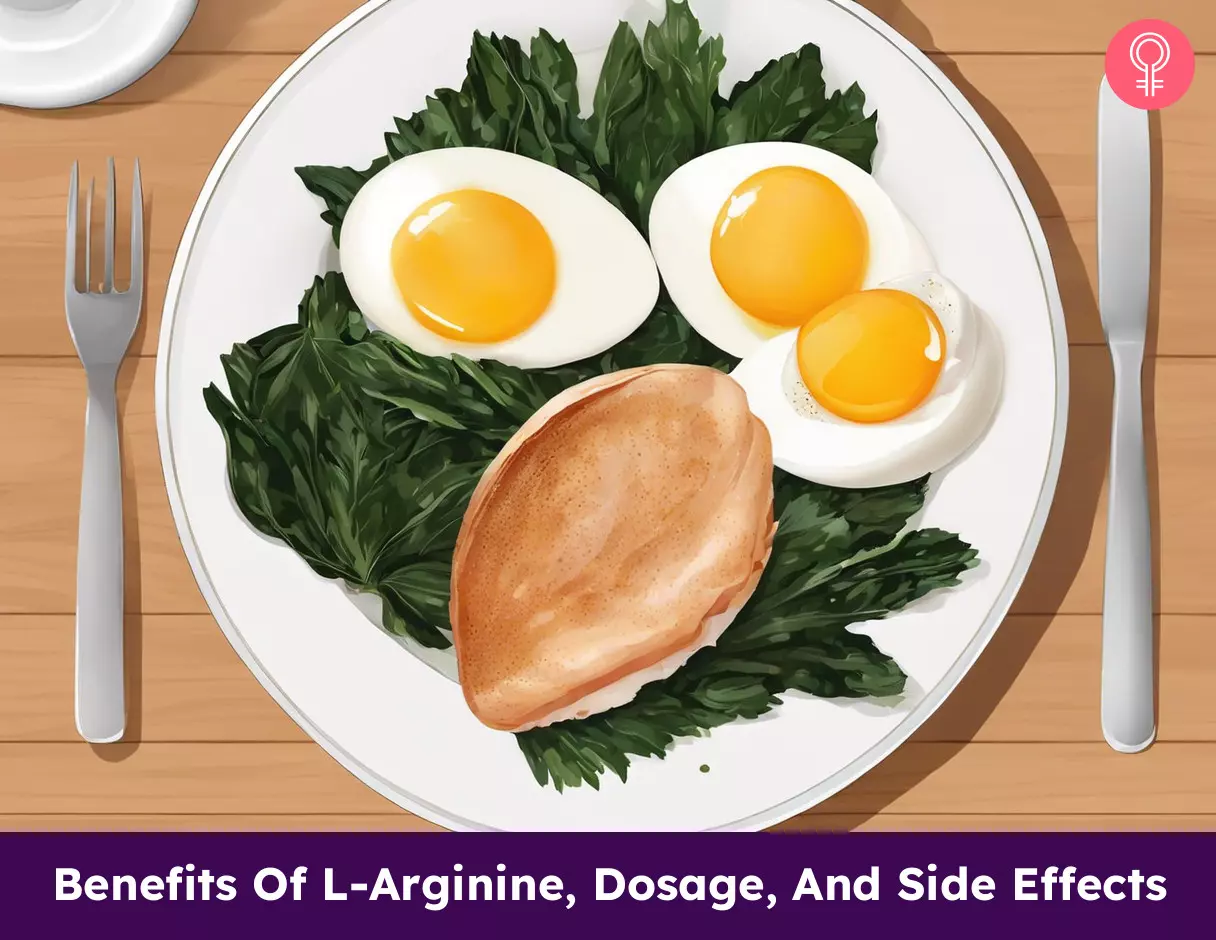
Image: Stable Diffusion/StyleCraze Design Team
Embark on a journey to uncover the extraordinary advantages of L-Arginine. Explore its transformative potential in enhancing your overall health and well-being, and witness the remarkable benefits it offers in this informative video below.
Personal Experience: Source
StyleCraze's articles are interwoven with authentic personal narratives that provide depth and resonance to our content. Below are the sources of the personal accounts referenced in this article.
i. My experience with L-Arginine!https://www.youtube.com/watch?v=L-DmTZtjVuQ
References
Articles on StyleCraze are backed by verified information from peer-reviewed and academic research papers, reputed organizations, research institutions, and medical associations to ensure accuracy and relevance. Read our editorial policy to learn more.
- Lerman, Amir, et al. “Long-term L-arginine supplementation improves small-vessel coronary endothelial function in humans.” Circulation 97.21 (1998): 2123-2128.
https://www.researchgate.net/publication/13658694_Long-term_L-Arginine_Supplementation_Improves_Small-Vessel_Coronary_Endothelial_Function_in_Humans - Drexler, Helmut, et al. “Correction of endothelial dysfunction in coronary microcirculation of hypercholesterolaemic patients by L-arginine.” The Lancet 338.8782-8783 (1991): 1546-1550.
https://www.sciencedirect.com/science/article/pii/0140673691923729 - Böger, Rainer H., and Stefanie M. Bode-Böger. “The clinical pharmacology of L-arginine.” Annual review of pharmacology and toxicology 41.1 (2001): 79-99.
https://www.annualreviews.org/content/journals/10.1146/annurev.pharmtox.41.1.79 - Hambrecht, Rainer, et al. “Correction of endothelial dysfunction in chronic heart failure: additional effects of exercise training and oral L-arginine supplementation.” Journal of the American College of Cardiology 35.3 (2000): 706-713.
https://www.jacc.org/doi/abs/10.1016/s0735-1097%2899%2900602-6 - Lucotti, Pietro, et al. “Oral L-arginine supplementation improves endothelial function and ameliorates insulin sensitivity and inflammation in cardiopathic nondiabetic patients after an aortocoronary bypass.” Metabolism 58.9 (2009): 1270-1276.
https://www.sciencedirect.com/science/article/abs/pii/S0026049509001371 - Dong, Jia-Yi, et al. “Effect of oral L-arginine supplementation on blood pressure: a meta-analysis of randomized, double-blind, placebo-controlled trials.” American heart journal 162.6 (2011): 959-965.
https://www.sciencedirect.com/science/article/abs/pii/S0002870311006971 - Vasdev, Sudesh, and Vicki Gill. “The antihypertensive effect of arginine.” The International journal of angiology : official publication of the International College of Angiology, Inc vol. 17,1 (2008): 7-22.
https://www.ncbi.nlm.nih.gov/pmc/articles/PMC2728371/ - Houston, Mark. “The role of nutrition and nutraceutical supplements in the treatment of hypertension.” World journal of cardiology vol. 6,2 (2014): 38-66.
https://www.ncbi.nlm.nih.gov/pmc/articles/PMC3935060/ - Palloshi, Altin, et al. “Effect of oral L-arginine on blood pressure and symptoms and endothelial function in patients with systemic hypertension, positive exercise tests, and normal coronary arteries.” The American journal of cardiology 93.7 (2004): 933-935.
https://www.sciencedirect.com/science/article/abs/pii/S0002914903017661 - Neri, Isabella, et al. “L-arginine supplementation in women with chronic hypertension: impact on blood pressure and maternal and neonatal complications.” The Journal of Maternal-Fetal & Neonatal Medicine 23.12 (2010): 1456-1460.
https://www.tandfonline.com/doi/abs/10.3109/14767051003677962 - Yao, Kang, et al. “Dietary L-arginine supplementation enhances intestinal development and expression of vascular endothelial growth factor in weanling piglets.” British journal of nutrition 105.5 (2011): 703-709.
https://www.cambridge.org/core/journals/british-journal-of-nutrition/article/dietary-larginine-supplementation-enhances-intestinal-development-and-expression-of-vascular-endothelial-growth-factor-in-weanling-piglets/23A680E4C2A514860913471ED6A02DE0 - Zamora, Samuel A., et al. “Plasma L-arginine concentrations in premature infants with necrotizing enterocolitis.” The Journal of pediatrics 131.2 (1997): 226-232.
https://www.sciencedirect.com/science/article/abs/pii/S0022347697701586 - Amin, Harish J., et al. “Arginine supplementation prevents necrotizing enterocolitis in the premature infant.” The Journal of pediatrics 140.4 (2002): 425-431.
https://www.sciencedirect.com/science/article/abs/pii/S0022347602063795 - Mitchell, Kevin, et al. “Arginine supplementation in prevention of necrotizing enterocolitis in the premature infant: an updated systematic review.” BMC pediatrics 14.1 (2014): 226.
https://bmcpediatr.biomedcentral.com/articles/10.1186/1471-2431-14-226 - Swiderski, Kristy, et al. “Spatiotemporal Mapping Reveals Regional Gastrointestinal Dysfunction in mdx Dystrophic Mice Ameliorated by Oral L-arginine Supplementation.” Journal of neurogastroenterology and motility 26.1 (2025): 133-146.
https://www.jnmjournal.org/journal/view.html?uid=1565&vmd=Full - Gad, Mohamed Z. “Anti-aging effects of L-arginine.” Journal of advanced research 1.3 (2010): 169-177.
https://www.sciencedirect.com/science/article/pii/S2090123210000573#bib60 - Mariotti, François. “Arginine supplementation and cardiometabolic risk.” Current Opinion in Clinical Nutrition & Metabolic Care 23.1 (2025): 29-34.
https://journals.lww.com/co-clinicalnutrition/Abstract/2025/01000/Arginine_supplementation_and_cardiometabolic_risk.7.aspx - Monti, Lucilla D., et al. “L-arginine enriched biscuits improve endothelial function and glucose metabolism: a pilot study in healthy subjects and a cross-over study in subjects with impaired glucose tolerance and metabolic syndrome.” Metabolism 62.2 (2013): 255-264.
https://www.sciencedirect.com/science/article/abs/pii/S0026049512003083 - Park, K. G. M., et al. “Stimulation of lymphocyte natural cytotoxicity by L-arginine.” The lancet 337.8742 (1991): 645-646.
https://www.sciencedirect.com/science/article/pii/014067369192456C - Geiger, Roger, et al. “L-arginine modulates T cell metabolism and enhances survival and anti-tumor activity.” Cell 167.3 (2016): 829-842.
https://www.sciencedirect.com/science/article/pii/S0092867416313137 - Rodríguez, Paulo C., and Augusto C. Ochoa. “Arginine regulation by myeloid derived suppressor cells and tolerance in cancer: mechanisms and therapeutic perspectives.” Immunological reviews 222.1 (2008): 180-191.
https://onlinelibrary.wiley.com/doi/abs/10.1111/j.1600-065X.2008.00608.x - Peranzoni, Elisa, et al. “Role of arginine metabolism in immunity and immunopathology.” Immunobiology 212.9-10 (2008): 795-812.
https://www.sciencedirect.com/science/article/pii/S0171298507001131 - Cao, Yu, et al. “L-Arginine supplementation inhibits the growth of breast cancer by enhancing innate and adaptive immune responses mediated by suppression of MDSCs in vivo.” BMC cancer 16.1 (2016): 343.
https://link.springer.com/article/10.1186/s12885-016-2376-0 - Farazi, Aliasghar, et al. “Arginine adjunctive therapy in active tuberculosis.” Tuberculosis research and treatment 2015 (2015).
https://www.hindawi.com/journals/trt/2015/205016/ - Chen, J., et al. “Effect of oral administration of high-dose nitric oxide donor L-arginine in men with organic erectile dysfunction: results of a double-blind, randomized, placebo-controlled study.” BJU int 83.3 (1999): 269-73.
https://bjui-journals.onlinelibrary.wiley.com/doi/pdf/10.1046/j.1464-410x.1999.00906.x - Moody, J. A., et al. “Effects of long-term oral administration of L-arginine on the rat erectile response.” The Journal of urology 158.3 (1997): 942-947.
https://www.auajournals.org/doi/abs/10.1016/S0022-5347(01)64368-4 - Morikawa, Eiharu, et al. “L-arginine infusion promotes nitric oxide-dependent vasodilation, increases regional cerebral blood flow, and reduces infarction volume in the rat.” Stroke 25.2 (1994): 429-435.
https://www.ahajournals.org/doi/abs/10.1161/01.STR.25.2.429 - Creager, Mark A., et al. “L-arginine improves endothelium-dependent vasodilation in hypercholesterolemic humans.” The Journal of clinical investigation 90.4 (1992): 1248-1253.
https://www.jci.org/articles/view/115987 - Giugliano, D et al. “The vascular effects of L-Arginine in humans. The role of endogenous insulin.” The Journal of clinical investigation vol. 99,3 (1997): 433-8.
https://www.ncbi.nlm.nih.gov/pmc/articles/PMC507816/ - Cherian, Leela, and Claudia S. Robertson. “L-arginine and free radical scavengers increase cerebral blood flow and brain tissue nitric oxide concentrations after controlled cortical impact injury in rats.” Journal of neurotrauma 20.1 (2003): 77-85.
https://www.liebertpub.com/doi/abs/10.1089/08977150360517209?cookieSet=1 - McKnight, Jason R., et al. “Beneficial effects of L-arginine on reducing obesity: potential mechanisms and important implications for human health.” Amino acids 39.2 (2010): 349-357.
https://www.researchgate.net/publication/44568221_Beneficial_effects_of_L-arginine_on_reducing_obesity_Potential_mechanisms_and_important_implications_for_human_health - Wu, Zhenlong, et al. “Regulation of brown adipose tissue development and white fat reduction by L-arginine.” Current Opinion in Clinical Nutrition & Metabolic Care 15.6 (2012): 529-538.
https://journals.lww.com/co-clinicalnutrition/Abstract/2012/11000/Regulation_of_brown_adipose_tissue_development_and.4.aspx - Gupta V, Gupta A, Saggu S, Divekar HM, Grover SK, Kumar R. Anti-stress and Adaptogenic Activity of l-Arginine Supplementation. Evid Based Complement Alternat Med. 2005;2(1):93‐97.
https://pubmed.ncbi.nlm.nih.gov/15841283/ - Horton, Jureta W., et al. “Arginine in burn injury improves cardiac performance and prevents bacterial translocation.” Journal of Applied Physiology 84.2 (1998): 695-702.
https://journals.physiology.org/doi/full/10.1152/jappl.1998.84.2.695 - Yan, Hong, et al. “Effects of early enteral arginine supplementation on resuscitation of severe burn patients.” Burns 33.2 (2007): 179-184.
https://www.sciencedirect.com/science/article/abs/pii/S0305417906001951 - Baylis, Chris. “Arginine, arginine analogs and nitric oxide production in chronic kidney disease.” Nature Clinical Practice Nephrology 2.4 (2006): 209-220.
https://idp.nature.com/authorize?response_type=cookie&client_id=grover&redirect_uri=https%3A%2F%2Fwww.nature.com%2Farticles%2Fncpneph0143 - Watanabe, Gohki, Hirofumi Tomiyama, and Nobutaka Doba. “Effects of oral administration of L-arginine on renal function in patients with heart failure.” Journal of hypertension 18.2 (2000): 229-234.
https://journals.lww.com/jhypertension/Abstract/2000/18020/Effects_of_oral_administration_of_L_arginine_on.15.aspx - Siani, Alfonso, et al. “Blood pressure and metabolic changes during dietary L-arginine supplementation in humans.” American journal of hypertension 13.5 (2000): 547-551.
https://academic.oup.com/ajh/article/13/5/547/103075 - Darband, Saber Ghazizadeh, et al. “Combination of exercise training and L-arginine reverses aging process through suppression of oxidative stress, inflammation, and apoptosis in the rat heart.” Pflügers Archiv-European Journal of Physiology 472.2 (2025): 169-178.
https://link.springer.com/article/10.1007/s00424-019-02311-1 - Böger RH. The pharmacodynamics of L-arginine. Altern Ther Health Med. 2014;20(3):48‐54.
https://pubmed.ncbi.nlm.nih.gov/24755570/ - Bahadoran, Zahra et al. “Dietary L-arginine intake and the incidence of coronary heart disease: Tehran lipid and glucose study.” Nutrition & metabolism vol. 13 23. 15 Mar. 2016.
https://www.ncbi.nlm.nih.gov/pmc/articles/PMC4793528/ - Kernohan, A F B et al. “An oral yohimbine/L-arginine combination (NMI 861) for the treatment of male erectile dysfunction: a pharmacokinetic, pharmacodynamic and interaction study with intravenous nitroglycerine in healthy male subjects.” British journal of clinical pharmacology vol. 59,1 (2005): 85-93.
https://www.ncbi.nlm.nih.gov/pmc/articles/PMC1884955/ - Kanaley JA. Growth hormone, arginine and exercise. Curr Opin Clin Nutr Metab Care. 2008;11(1):50‐54.
https://pubmed.ncbi.nlm.nih.gov/18090659/ - Arginine
https://www.sciencedirect.com/topics/neuroscience/arginine - Grimble, George K. “Adverse gastrointestinal effects of arginine and related amino acids.” The Journal of nutrition vol. 137,6 Suppl 2 (2007): 1693S-1701S. doi:10.1093/jn/137.6.1693S
https://pubmed.ncbi.nlm.nih.gov/17513449/ - Pahlavani, N., Entezari, M., Nasiri, M. et al. The effect of l-arginine supplementation on body composition and performance in male athletes: a double-blinded randomized clinical trial. Eur J Clin Nutr 71, 544–548 (2017).
https://www.nature.com/articles/ejcn2016266 - Hurt, Ryan T., et al. “L-arginine for the treatment of centrally obese subjects: a pilot study.” Journal of dietary supplements 11.1 (2014): 40-52.
- https://www.researchgate.net/publication/259696395_L-Arginine_for_the_Treatment_of_Centrally_Obese_Subjects_A_Pilot_Study
- Jobgen, Wenjuan et al. “Dietary L-arginine supplementation reduces white fat gain and enhances skeletal muscle and brown fat masses in diet-induced obese rats.” The Journal of nutrition vol. 139,2 (2009): 230-7.
https://www.ncbi.nlm.nih.gov/pmc/articles/PMC3151442/ - Khalaf, David et al. “The Effects of Oral l-Arginine and l-Citrulline Supplementation on Blood Pressure.” Nutrients vol. 11,7 1679. 22 Jul. 2019.
https://www.ncbi.nlm.nih.gov/pmc/articles/PMC6683098/ - L-Arginine alleviates the testosterone reduction in heat-treated mice by upregulating LH secretion, the testicular antioxidant system and expression of steroidogenesis-related genes
https://pubmed.ncbi.nlm.nih.gov/32586418/
Read full bio of Temple Stewart
Read full bio of Sindhu Koganti
Read full bio of Ravi Teja Tadimalla
Read full bio of Himanshi Mahajan





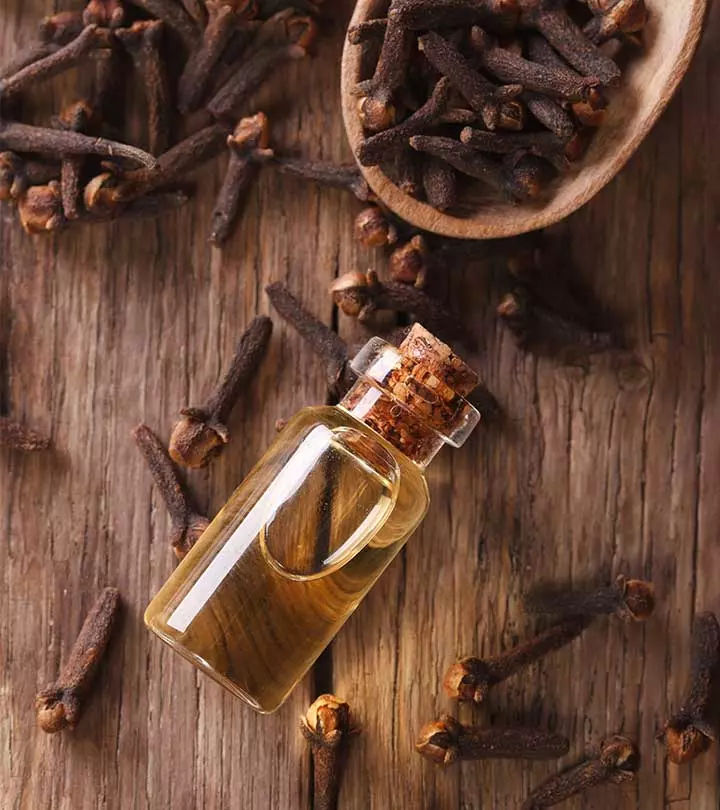
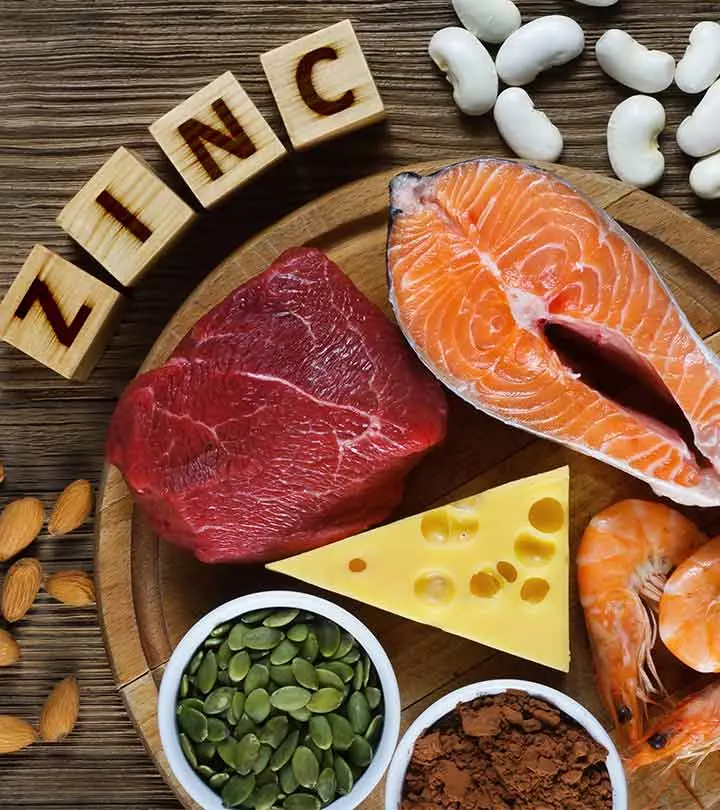


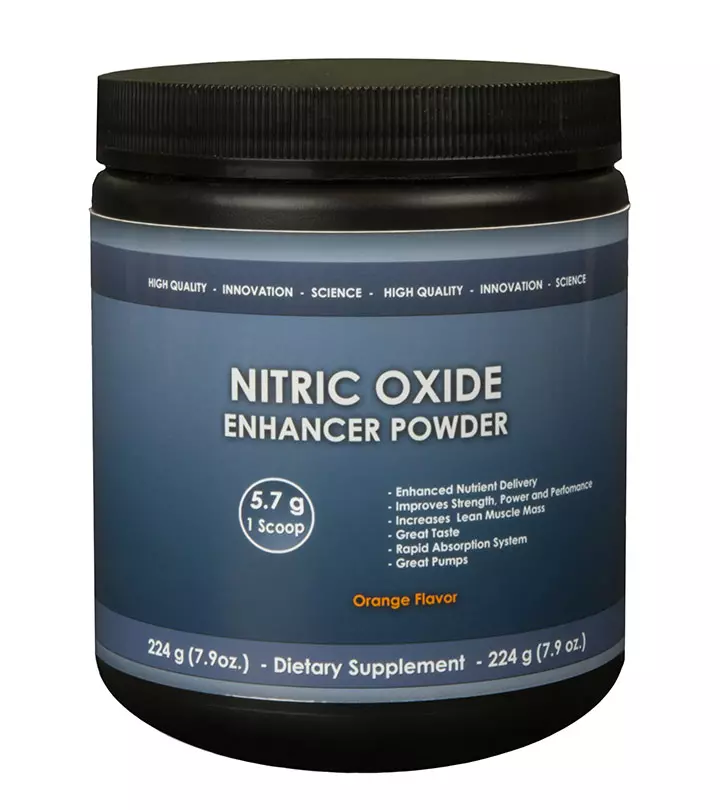



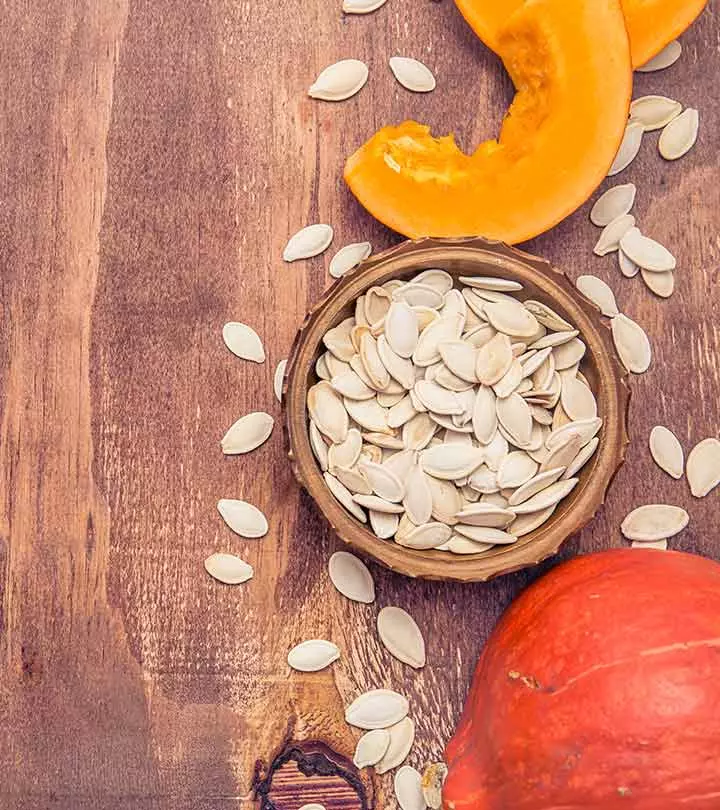
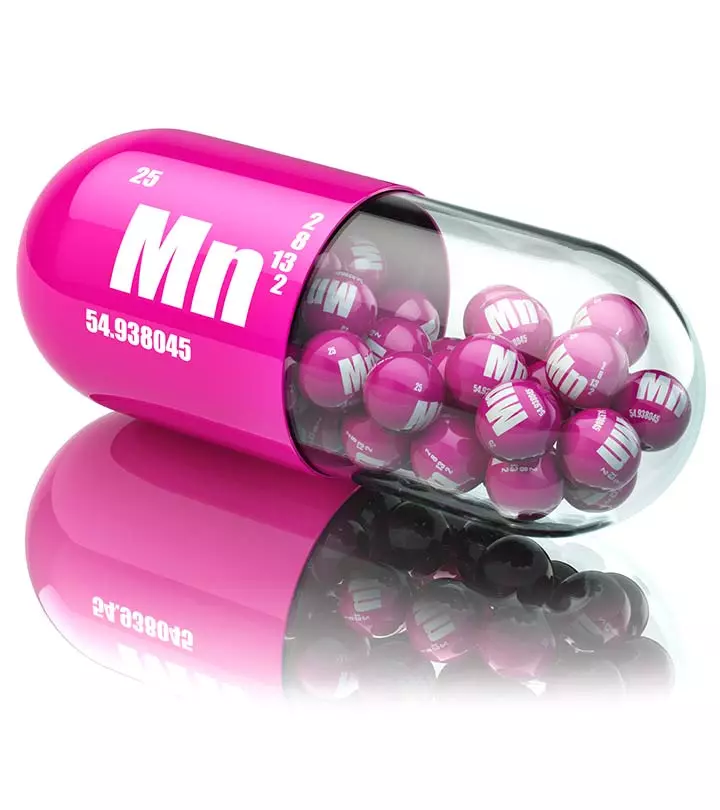


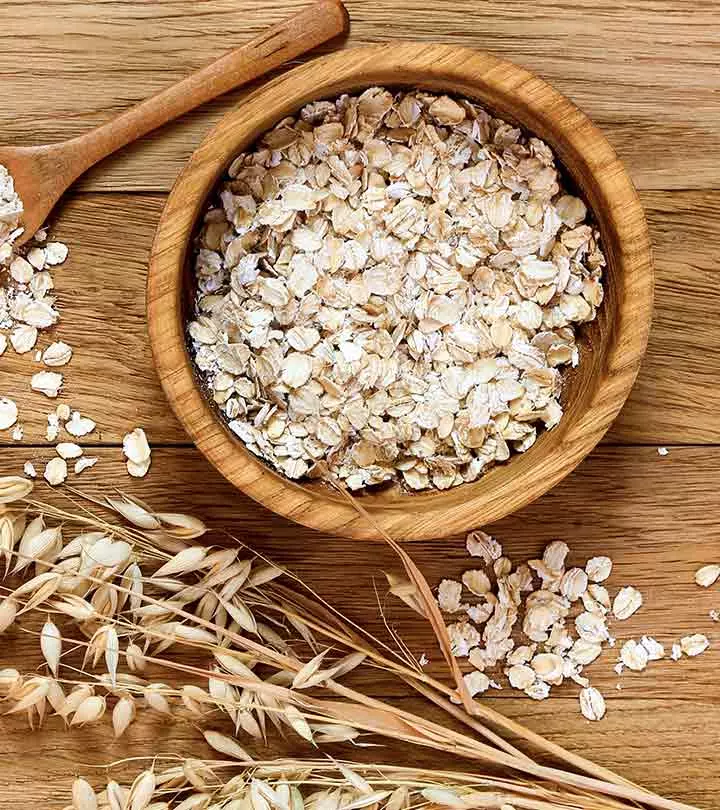


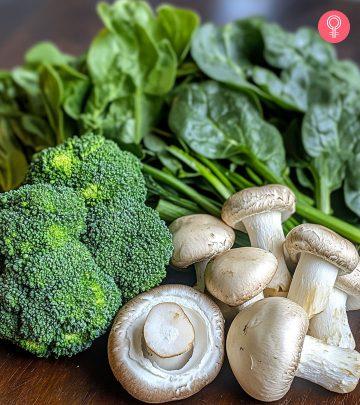



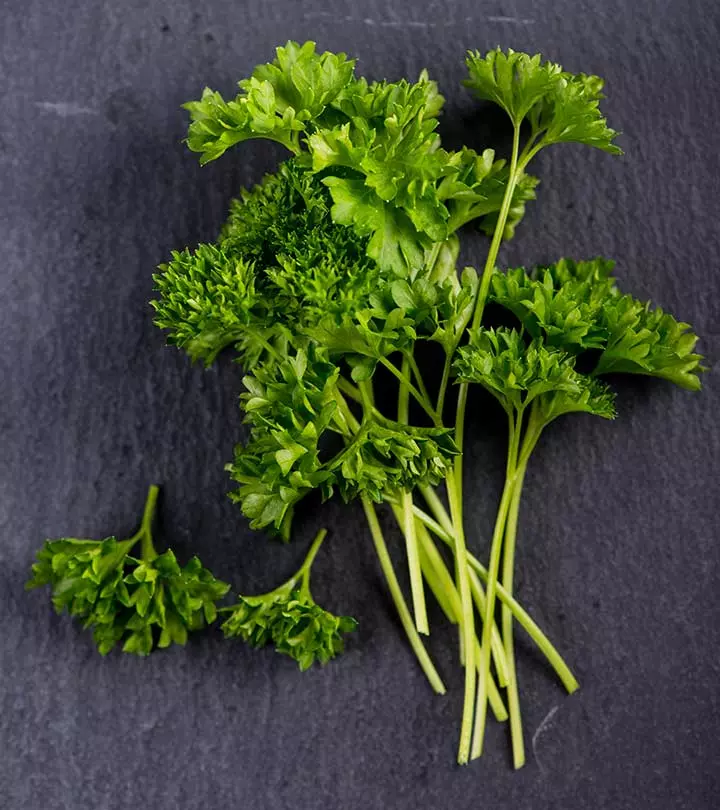


Community Experiences
Join the conversation and become a part of our empowering community! Share your stories, experiences, and insights to connect with other beauty, lifestyle, and health enthusiasts.